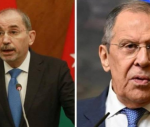You are here
The making of Macron
Apr 26,2017 - Last updated at Apr 26,2017
Relief and pride are the main emotions many French citizens are feeling after the first round of the French presidential election, in which Emmanuel Macron finished first.
For once, the pollsters were right: the two favoured candidates — Macron and the National Front’s Marine Le Pen — advanced to the second-round runoff on May 7.
Gone is the sense of anxiety that had attended the weeks, days, and hours before the election, owing to fears that France would wake up to a second-round choice between the far-right Le Pen and the far-left candidate Jean-Luc Mélenchon.
Many observers saw France as economically, socially and politically vulnerable — even more so than the United Kingdom, the United States or Germany — to such a choice.
After the UK’s Brexit vote and Donald Trump’s victory in the US presidential election, surely this was Le Pen’s window of opportunity.
Some of us, only half-jokingly, have even mused about where we would flee if Le Pen won. Between a Great Britain that is leaving the European Union, and a US under Trump, there are few good options.
Fortunately, reason and hope prevailed over anger and fear, and French citizens defied those who warned that populism might triumph in the land of the French Revolution.
While a Le Pen victory is technically possible, the composition of the French electorate makes it highly unlikely.
Very few of Mélenchon’s leftist voters will cross over to the extreme right. And while some of the centre-right candidate François Fillon’s supporters may now vote for Le Pen, it will not be enough to sway the election in her favour.
In other words, the French exception is alive and well. France’s contrarian electorate has demonstrated to the world — and especially to the Anglo-Saxon world — that one need not betray one’s defining values to defeat populism.
Despite a recent wave of terror attacks, the French have proved their resilience against the politics of fear.
And even with Euroscepticism on the rise, the pro-European candidate, Macron, received more votes than any other.
Exceptional circumstances sometimes give rise to exceptional characters. Without the French Revolution, Napoleon Bonaparte would have remained a junior officer in the French Royal Army.
Similarly, albeit less dramatically, if France’s two main political parties had not collapsed, the 39-year-old Macron, who was unknown to most French voters a year ago, would still be just another economic whiz kid.
Macron looks like a French John F. Kennedy and he campaigned in the mode of Barack Obama. But he got where he is because the Socialist Party of François Mitterrand is dead, and the conservative Les Républicains are in shambles.
The Socialists, for their part, could not come up with a modern political agenda. And the Republicans failed to tap another candidate after Fillon became tainted by scandal. As a result, France, despite its reputation for melancholy, self-doubt and pessimism, is about to elect its youngest-ever president. At that point, however, Macron will face a whole new set of challenges, starting with legislative elections that are scheduled for June.
Will Macron end up with a governing majority in the national assembly, or will the right present a united front and force him into the uniquely French practice of cohabitation?
In France’s semi-presidential system, cohabitation means that the executive branch can become paralysed if the president and the prime minister represent different political factions.
But Macron wants to prove that he can implement the majority-coalition model followed in parliamentary systems, with an “alliance of the willing”, comprising different but compatible political sensitivities, pursuing a common goal.
To my mind, France is ripe for a coalition government that can transcend increasingly anachronistic left-right political lines.
The real political divide in France, as in so much of the West, is now between those who defend global openness and those who favour a return to nationalist isolation. Macron will have to acknowledge the cultural roots of traditional left-right divisions, while also addressing the deep-seated, revolutionary anger that now exists in France.
Despite Macron’s strong showing in the first round, some 40 per cent of the French electorate voted for the Eurosceptic candidates Le Pen and Mélenchon.
Restoring these voters’ confidence in existing institutions, and reintegrating them into the political mainstream, will not be easy.
Defeated parties will be tempted to take to the streets and block attempts at reform.
Having failed at the ballot box, they may — in traditional French revolutionary fashion — resort to “the barricades”.
Macron has demonstrated his immense qualities as a candidate. After May 7, he will have to prove that, despite his youth and lack of experience, he can become a great president.
Winning power is one thing; but it is another matter to exercise power effectively, while avoiding the authoritarian tendencies that can emerge under extraordinary circumstances.
That is the task facing Macron.
Driven by a sense of destiny, he must resist the temptations of Bonapartism.
In the meantime, the democratic world should see Macron for what he is: a beacon of hope in a sea of doubt and despair.
The writer is senior counsellor at the Institut Montaigne in Paris. ©Project Syndicate, 2017. www.project-syndicate.org










